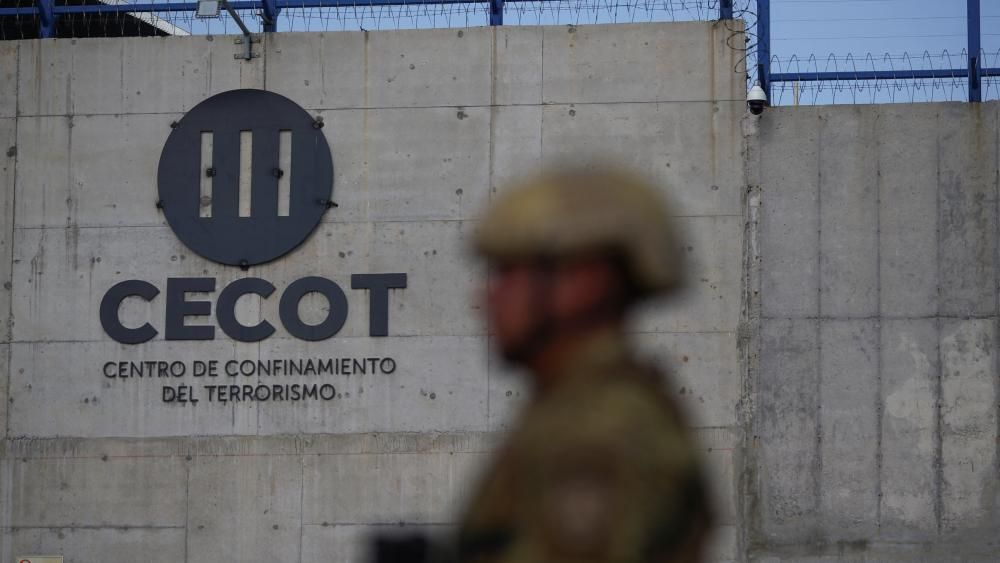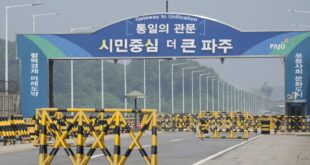In a critical administering, the U.S. Incomparable Court has authorized previous President Donald Trump to utilize a wartime law that gives the government wide powers to speed up extraditions. This choice has blended discussion and raised questions approximately the adjustment of control between national security concerns and personal rights. Here’s an in-depth look at what this administering implies, the law at the heart of the choice, and its potential effect on migration arrangement within the U.S.
What Is the Wartime Law in Question?
The law at the center of the U.S. Preeminent Court administering is the Outsider Adversaries Act, which dates back to 1798 and permits the U.S. government to confine and extradite people from adversary countries amid times of war or national crisis. Whereas it was initially outlined to address concerns almost outside nationals who might posture a risk to national security amid wartime, the law has broader suggestions, giving the government broad power over the migration status of people who come from nations the U.S. is locked in in strife with.
Under this law, the U.S. president can take action against remote nationals by forcing limitations or extraditing those regarded as perilous or troublesome to national security, indeed without the normal due prepare securities managed to other people. The law has seldom been utilized in later decades but picked up unused pertinence amid the Trump organization.
The Incomparable Court’s Ruling.
In a choice that has started a furious wrangle, the U.S. Incomparable Court ruled in favor of permitting the Trump organization to utilize the Outsider Adversaries Act to quicken expulsions, indeed in cases where people are not formally charged with criminal action. The Court’s administering empowers the government to bypass certain legitimate securities for outside nationals, a move that seems to have noteworthy repercussions on both the national security approach and the movement system.
The case recently brought some time the Incomparable Court included people who were confined by U.S. migration specialists and who, beneath the Trump administration’s mandate, were considered to be “adversary outsiders” despite not being formally denounced of violations. The administering clears the way for the government to speedily extradite people from countries that are seen as unfriendly or whose governments are seen as a danger to U.S. interests.
The Legitimate and Protected Implications
The choice to allow Trump the control to utilize the Outsider Adversaries Act for expulsions raises several lawful and sacred questions. The administration has reignited concerns around the disintegration of due prepare rights for workers, especially those from countries the U.S. considers to be a national security risk. Pundits contend that the law may be utilized in a way that undermines assurances ensured by the U.S. Constitution, particularly the Fifth and 6th Amendments, which ensure against illegal detainment and guarantee the proper to a reasonable trial.
Additionally, there are concerns that this choice seem open the entryway for broader translations of what constitutes a “national emergency” and whether the government will have unchecked specialist to require comparable activities within the future, possibly focusing on defenseless bunches or people with shaky migration statuses.
Why Is This Administering Controversial?
The administration has started serious feedback, especially from gracious rights advocates, movement activists, and those concerned with the potential for racial or national segregation. Faultfinders contend that permitting the president to singularly oust outside nationals without the due preparation of the courts seems to lead to far-reaching manhandling of control, with people being focused on for reasons that have little to do with genuine security threats.
Some of the foremost vocal adversaries have pointed out that the Outsider Adversaries Act was passed at a time when the U.S. was managing issues such as French and British dangers, a period unfathomably distinctive from today’s globalized world. They contend that applying such a law to present-day migration challenges, counting issues tied to displaced people and refugee searchers, is obsolete and ill-suited to today’s complex geopolitical landscape.
Moreover, the Trump administration’s position on movement has as of now been a polarizing issue all through his administration, with numerous of his arrangements seen as unforgiving and exclusionary. The utilize of the Outsider Adversaries Act for expulsions includes another layer of contention to an as of now divisive topic.
What Does This Cruel for Future Movement Policy?
This administration has wide-reaching suggestions for U.S. migration arrangements moving forward. By allowing the president the control to utilize the Outsider Adversaries Act as an apparatus for extradition, the Court has opened the entryway for future organizations to apply this wartime specialist in different settings. Whereas Trump’s organization initially pursued this approach, there’s concern that future presidents, regardless of political affiliation, could utilize the same law to expedite expulsions or reduce migration, indeed within the nonattendance of a pronounced state of war.

Furthermore, the choice may set a unsafe point of reference for how laws initially outlined for national security concerns are connected within the movement setting. On the off chance that the wartime law is amplified to circumstances exterior of an real military struggle, it might lead to the encourage development of official powers in a way that undermines securities for migrants.
The Effect on Migrants and Communities
The prompt affect of the administering is that it may result in an expanded pace of extraditions, especially for people from countries the U.S. considers antagonistic or unsteady. Migrants from these nations may presently confront a increased hazard of being kept and ousted, indeed in case they have lawful grounds for remaining within the U.S., such as pending refuge cases or applications for lawful status.
For communities that are now defenseless, counting displaced people and refugee searchers escaping war-torn or politically unsteady locales, this choice may discourage them from looking for asylum within the U.S. or prevent them from seeking legitimate roads to secure lasting residency or citizenship. This might compound fears and vulnerabilities inside foreigner populaces who, as of now, confront antagonistic talk and arrangement environments.
Additionally, the administering may have a chilling impact on legitimate movement, as people may fear being focused on based on nationality, ethnicity, or nation of beginning. Advocates for worker rights are calling for a reassessment of this administering to anticipate its potential abuse or overreach.
Looking Ahead: What Are the Lawful Challenges?
As anticipated, the Incomparable Court administering is likely to proceed confronting legitimate challenges. Respectful freedoms organizations, foreigner-backing bunches, and others are investigating roads to challenge the application of the Outsider Adversaries Act in this setting. Legitimate specialists contend that the law may be ready for encourage examination, particularly in case future extraditions and detainments beneath this power are seen as intemperate or discriminatory.
There is additionally the plausibility that Congress may step in and pass unused enactment that alters or limits the utilization of the Outsider Adversaries Act in expulsion cases. A few officials have, as of now, communicated concern around the effect of the Court’s choice on foreigner communities, and weight may mount to pass changes to anticipate the abuse of such laws.
Conclusion
The U.S. Supreme Court’s choice to permit the Trump organization to utilize the Outsider Adversaries Act for extraditions speaks to an urgent minute in U.S. movement arrangement. The administering gives the president critical control to speed up expulsions and keep remote nationals without conventional lawful assurances, starting a wrangle about over-protected rights, national security, and the longer term of movement law. Whereas defenders contend it’s fundamental for national security, pundits caution it seems to lead to mishandling and infringement of person rights. The choice is likely to shape the country’s approach to migration for a long time to come, and the lawful and political consequences will be observed closely by all sides of the movement talk about.




